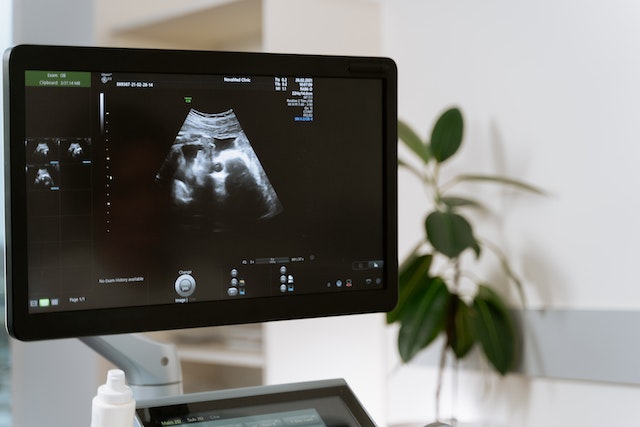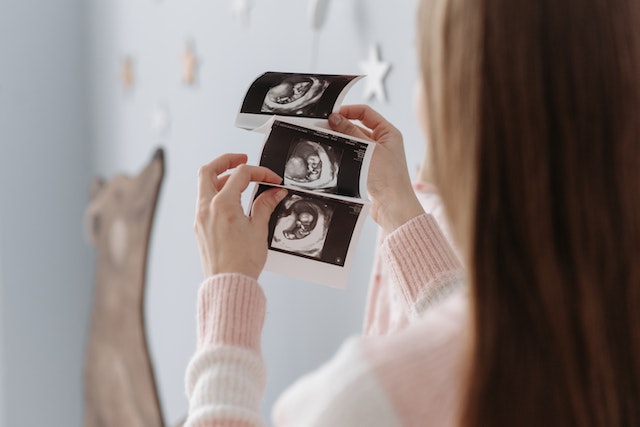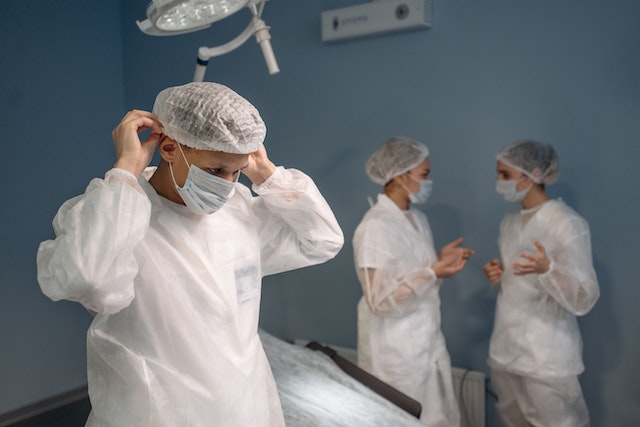How to Deal with fibroids during pregnancy is always a question for pregnant women suffering from fibroids; however, before answering the question let's look at what fibroids are and what it means.
Fibroids or leiomyomas are benign tissue growth and muscle enlargement in the uterus (around the womb). Yet, enlargement is always hard to catch during pregnancy due to the variations in size and the thickness of the uterus wall the women experience during pregnancy.
Before we get into how to deal with fibroids during pregnancy, let's answer some other important questions first.
Who is it most common with
It usually occurs in women during active reproductive years and the older the woman gets more likely to have fibroids.
Are there types?
The answer is Yes
It has 3 types depending on the location of the enlargement
1) Intramural fibroids
Intramural fibroids are the most frequent form of fibroid and originate in the womb's muscular wall.
2) Subserosal fibroids
Subserosal fibroids are fibroids that originate outside the uterine wall into the pelvis and can grow to be quite big.
3)Submucosal fibroids
Submucosal fibroids are fibroids that form in the muscle layer beneath the inner lining of the womb and expand into the cavity.
Note: Subserosal or submucosal fibroids are sometimes linked to the womb by a short stalk of tissue. These are referred to as pedunculated fibroids.
What causes fibroids and how to deal with fibroids during pregnancy
Researchers are not sure about the reason; however, hormones Are more likely to be the reason.
Estrogen is the hormone researchers think is the cause and that is why overweight women are at high risk of fibroids due to obesity elevating estrogen in the body.

How to diagnose fibroids during pregnancy
Fibroids are usually asymptomatic however 1:3 of women can feel a few symptoms such as:
- Abdominal pain
- Lower Backache
- High urination
- Inconvenient sex
And fibroids during pregnancy are a challenge for the doctor to notice or recognize the fibroids since the uterus wall gets thick during pregnancy and for confirmation doctors usually need to make an ultrasound of the patient for a conclusive diagnosis.

Do fibroids occur during pregnancy or before?
Usually before pregnancy but if the woman does not suffer from fibroids then She will likely develop the fibroids in the first 13 weeks (first trimester) because estrogen level (the hormone responsible for fibroids) is high in this timeline of pregnancy.
What Will pregnant women suffer as consequences due to fibroid growth?
Depending on the stage of pregnancy consequences could differ, the first trimester has different consequences than the second and third trimesters
1) First trimester
Symptoms
- Pain
- Bleeding
- Pain and bleeding are the main symptoms most women suffer however some can have just one.
Abortion
The percentage of miscarriages is high in women with fibroids. In addition, the number of fibroids and the size are parameters in this equation. The more fibroids the more risk of miscarriages could occur and the same goes for the size.
2) In the Second And Third Trimesters
A fibroid could be forced upon you when your uterus grows to create a place for your baby. This can lead to a variety of complications throughout your pregnancy, including
Pain
Especially if fibroids are large.
Cramping and Discomfort
Sometimes fibroids get twisted which generates an inconvenient feeling.
Severe Stomach Pain
Whenever a fibroid's blood supply runs gone, it turns red and dies. This process, known as "red degeneration," can result in severe stomach aches. It can cause miscarriage in some situations.
Abruption of the Placenta
According to ongoing research, pregnant women with fibroids have a much higher risk of placental abruption than women without fibroids which means your placenta breaks away from the uterine wall before your baby is born.
Frankly, It is quite dangerous since your baby will not receive enough oxygen and you may experience significant bleeding.
Premature birth
If you have fibroids, you are more likely than other women to deliver prematurely, which means your baby is born before 37 weeks of pregnancy.
3) During delivery
C-section
According to much research, having uterine fibroids increases your chances of having a cesarean delivery, This could be because fibroids can stop the uterus from contracting and obstruct the delivery canal, slowing the progression of your labor.
Women with fibroids are six times more likely to need a C-section than normal women.
Breech birth
Another potential issue is breech birth. In a typical birth, the infant emerges from the birth canal head first. The baby's bottom or feet emerge first in a breech delivery.
The infant may be unable to align for vaginal birth due to the irregular shape of the cavity.
4)After pregnancy
Fibroids frequently decrease. According to one study, 70% of women who had live deliveries had their fibroids shrink by more than 50% 3 to 6 months after delivery.
How to deal with fibroids during pregnancy
Because of the risk to the fetus, treatment for uterine fibroids is restricted during pregnancy; however, fibroids do not enlarge during pregnancy yet symptoms are still an issue.
There are two ways how to deal with fibroids during pregnancy
1) Habits may aid in symptom relief

Sleeping position
Sleep down with a pillow between your knees, or lay on your side with your knees raised to your chest. These are one of the best ways how to deal with fibroids during pregnancy and may help relieve abdominal discomfort or pressure.

Hydration
Green tea, which contains a variety of antioxidants, is one way that answers how to deal with fibroids during pregnancy, and based on one study, epigallocatechin gallate (a tea constituent) may help reduce the formation of fibroids by reducing inflammation and elevating levels of estrogen.
Manage stress
Pregnancy always carries a high level of stress, and relaxing techniques are one way if you want to know how to deal with fibroids during pregnancy.
Having a gentle massage or yoga help however, experts are not sure yet they continue investigating the influence of stress on fibroids, and some data suggests the two may be connected.
Monitor blood pressure
One way how to deal with fibroids during pregnancy is blood pressure since researchers have linked fibroids and high blood pressure.
Discuss with your doctor how to control your blood pressure with food, lifestyle, or medication.

2) Medical Approach
Pills
Mild pain medications like paracetamol may be provided to help pregnant women in controlling fibroids symptoms. And that is the best way if you ask how to deal with fibroids during pregnancy especially to get rid of the pain and cramping symptoms.
Operation
During pregnancy, we do not remove fibroids tissue, but yet a myomectomy can be performed in women in the second half of their pregnancies in very rare situations.
This surgery eliminates fibroids from the exterior or within the uterus while leaving the uterus intact.
Because of the potential hazards to the fetus, fibroids forming in the uterine cavity are usually left alone.
Summary
How To Deal With Fibroids During Pregnancy: Simple Habits Can Help such as sleeping postures and stress management.
We do not remove fibroids during pregnancy, but in extremely rare cases, a myomectomy can be performed in women in the second part of their pregnancies.
Read more about:


You must be logged in to post a comment.